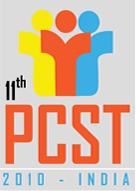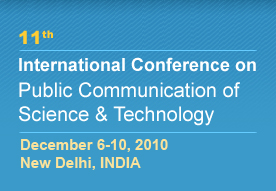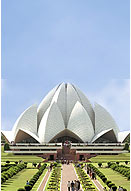About PCST
Public Communication of Science & Technology (PCST) is important for the economic and social wellbeing of society and for the exercise of participatory democracy. It implies the ability to respond to technical issues and problems that pervade our daily lives. It does not mean detailed knowledge of scientific principles, phenomena or technologies, but rather an appreciation of the way science works and how the community can interact with science to help shape its work. New technologies and new media can trigger and sustain public interest in S&T, allowing a dialogue to developing and preparing the people for change.
The 11th PCST Conference will deliberate on both practical and theoretical aspects of science communication, in a globalised world with major inequalities and development challenges. Science communication practitioners and analysts from all continents will compare experiences and perspectives on science-based issues of today and tomorrow.
India, one of the most emerging economies, is uniquely positioned to host a discussion on the role of science in modern society. Poised between modern and developing nations, India represents the future: a world where everything is under challenge including the old frontiers.
Objectives
The aim of 11th PCST-2010 is to consider new ways of thinking about science communication, and new ways of putting the best ideas into practice, models, tools, policy matters and social factors involved in public communication of science and technology. In the footsteps of previous conferences in Malmo/Copenhagen (2008), Seoul (2006), Barcelona (2004), Cape Town (2002) and before, the Conference will provide an opportunity for the presentation and open discussion of all kinds of ideas, experiences and works related to science communication, popularisation and literacy.
PCST Academy
The Academy is responsible for the creation of the documentary basis of the Public Communication of Science and Technology network (PCST) and its main task is to draw up reports on particular matters in the field of communication and social understanding of science.
The Academy will additionally look for the necessary resources at an international level to guarantee entrance to the network and its activities of those countries that currently have more difficulties. The network must grow, but it must also represent all the different cultures of the world. Thus science communication must respect different cultural contexts and include the knowledge of all continents.
A reference list of documents can be found on the PCST Academy and PCST Network website.









